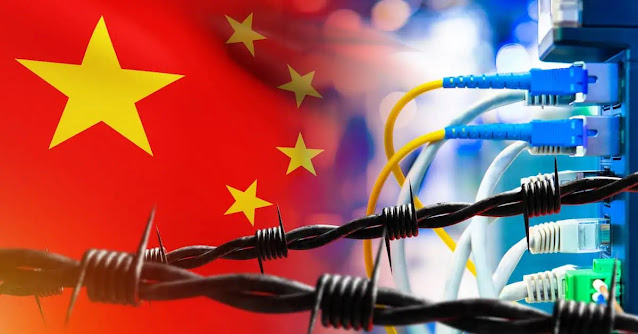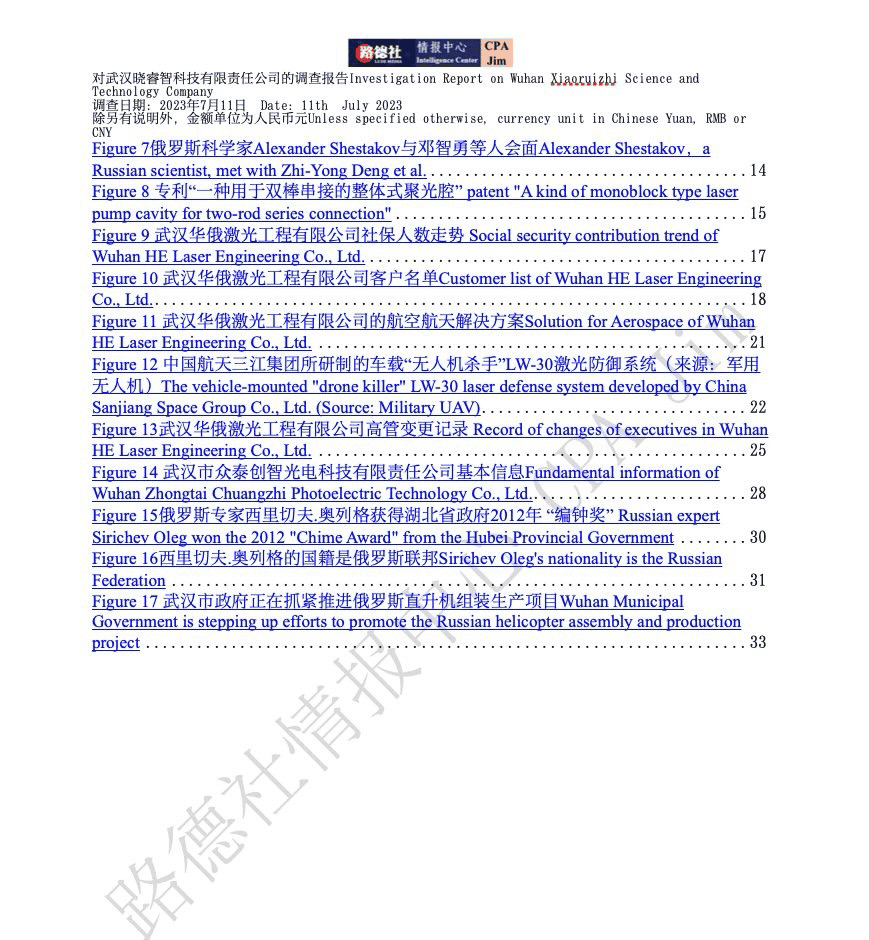CCP Cyber espionage operations and the 'friendship' diplomacy targeting the US and allies -The Voice of Dr. Yan
I join Dr. Yan once again to continue our discussions on China, their Unrestricted Warfare, and in this case focus on its cyber operations against the United States and more.
On 25 Mar, the DOJ released the indictment that seven defendants operated as part of the APT31 hacking group in support of China’s Ministry of State Security’s transnational repression, economic espionage, and foreign intelligence objectives. The defendants work as contractors in Wuhan Xiaoruizhi Science & Technology Co., Ltd. (“Wuhan XRZ”), which was created by the State Security Department in Hubei province to serve as cover for multiple malicious cyber operations. (Seven Hackers Associated with Chinese Government Charged with Computer Intrusions Targeting Perceived Critics of China and U.S. Businesses and Politicians)
Within a couple of days, the U.K. announced sanctions against two of those individuals in the indictment, as well as Wuhan XRZ. (U.S., U.K., and New Zealand Accuse China of Cyberattacks Targeting Politicians, Voters) Canada’s electronic intelligence agency confirmed the same widespread cyberespionage campaign tied to Beijing has also targeted Canada. (Canada targeted by same Chinese hackers the U.S., U.K. accuse of cyberespionage that hit millions)
Though the separate Beijing-linked cyber-attacks hit all members of the Five Eyes alliance, New Zealand did not follow the US and UK in imposing financial restrictions. (Why didn’t New Zealand impose sanctions on China?)
On 26 March, Chinese Foreign Ministry spokesperson Lin Jian claimed at the routine press conference that “such groundless accusations have been rejected out of hand on Tuesday by the Chinese Foreign Ministry, which urged the US, the instigator behind the smear campaign, to stop politicizing cybersecurity issues and act responsibly in cyberspace.”
“China firmly opposes and combats all kinds of cyberattacks and is committed to working with all countries, on the basis of mutual respect, equality, and mutual benefit, to strengthen cooperation and jointly deal with the threats of cybersecurity through channels such as bilateral dialogue or judicial assistance,” Lin said. (China urges US to stop politicizing cybersecurity issues)
Our team, led by Lude Media and me, has provided a detailed investigative report focusing on Wuhan XRZ (“Investigation Report on Wuhan Xiaoruizhi Science and Technology Company”) to the federal agencies last summer. In the non-disclosed report, a lot of evidence shows the company is in close collaboration with photonics and related military technology with Russia.
For example, in 2012, organized by the Hubei Provincial government, the Hubei Laser Delegation, including Wuhan XRZ, participated in the 7th International Photonics 2012 of Russia and visited related laser enterprises and scientific research institutes in Moscow, St. Petersburg, Yekaterinburg and other cities in Russia. According to CCP’s briefing, the main task of the delegation was to strengthen exchanges and cooperation between Hubei’s high-tech industries and Russia’s science and technology and to establish a cooperation platform to seek the latest achievements in the fields of laser technology and machinery with relevant Russian entities.
In Nov 2019, Zhi-Yong Deng, chief executive of Wuhan XRZ, and a well-known Russian laser scientist, Dr. Alexander Shestakov, went to Shanghai Feibo Laser Technologies Co., Ltd. to visit and exchange. Dr. Shestakov is the chief researcher of POLYUS Research Institute in Russia and one of the founders of IRE Polys, the predecessor of IPG in the United States. (http://www.feibolaser.com/m/news_view.aspx?TypeId=139&id=438&fid=t2:139:2)
Notably, on 20 Mar, the U.S. government warned state governors that hackers controlled by Iran’s Revolutionary Guards and the Chinese government are carrying out disruptive cyberattacks against water and sewage systems throughout the country. The letter released by the White House calls on governors to “ensure that all water systems in your state comprehensively assess their current cybersecurity practices” and prepare for potential cyber incidents. (US warns hackers are carrying out attacks on water systems)
• What threats and damage could CCP’s hacking system pose to national security and the geopolitical situation?
• What actions and strategies should be adopted by the US and its allies?
• What does it mean that CCP’s hacking entity, Wuhan XRZ, is also deeply involved in the laser industry with Russia?
Meanwhile, Xi-CCP is conducting a new version of friendship diplomacy using the next generation to influence Americans.
On 23 Mar, CGTN reported:
“Dozens of U.S. students are on a visit to multiple cities in China from March 17 to 27 to experience Chinese culture and technology and continue the friendship between the people of the two countries… As for people-to-people exchanges between the two countries, Ping-Pong Diplomacy and panda diplomacy have stood out and continued all along.” (Visiting U.S. students forge lasting friendships through cultural exchange in China)
In my previous broadcast and article, I’ve revealed the true color of CCP’s friendship diplomacy strategy.
“However, what is untold in Ping Pong Diplomacy is that the whole scenario was designated by CCP. At the same time, the encounter in Japan was taken as a proper opportunity to show kindness and goodwill from Chinese people to Americans. Our exclusive sources in the core of CCP have told us that Zhuang Zedong is not an ordinary athlete.”
“Zhuang is a secret agent in the International Liaison Department of the Central Commission of CCP, who works in an important role of the Covert Front in the sports field. The Chinese team attended the game in Japan to seek a chance of people’s diplomacy with the U.S. under Zhou Enlai’s direction. The covert operation successfully raised China’s international standing and paved the way for CCP’s infiltration into the U.S.”
(Ping Pong Diplomacy Is an Essential Tool in CCP’s Intelligence Operations)
• How did CCP’s friendship diplomacy influence Americans in the past four decades?
• Why does it seem that the same tactics still work, as shown in the news?
• What shall Americans do to confront CCP’s cognitive warfare and prevent the potential damage?
Edward Haugland is a retired federal Senior Executive and US Air Force veteran. His over four decades of service include serving as a senior leader in the Intelligence Community and the Department of Defense, Homeland Security, Energy, and State. He’s served as the senior advisor to several IC agency heads, the Assistant Inspector General for Inspections for the Intelligence Community, the Chairman of CIA’s strategic planning, a Deputy team lead for the INF On-site nuclear arms inspections in the former Soviet Union, and as award-winning CIA intelligence analyst. He is currently an independent consultant focusing on cognitive warfare. He is also a regular host on The National Security Hour on the American Out Loud Talk Radio Network.
His new book, “The Cognitive War: Why We Are Losing and How We can Win,” can be ordered now.
The Voice of Dr. Yan can be heard on Saturday and Sunday at 4 pm. Listen on iHeart Radio, our world-class media player, or our free apps on Apple, Android, or Alexa. All episodes can be found on podcast networks worldwide the day after airing on talk radio.




Comments
Post a Comment